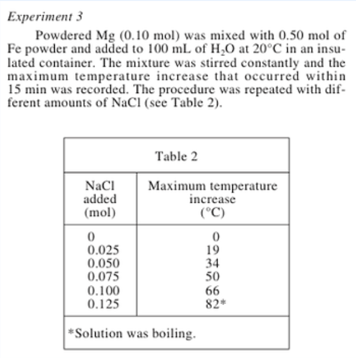
Because all US colleges accept scores from either the ACT or SAT, picking the test on which you’ll perform better is critical to your admission chances. But when parents and students ask whether the ACT is easier than the SAT, it can be hard to give a good answer. You might not know how the tests compare with each other or which one you're more likely to do better on.
There are differences between the SAT and ACT that can make one or the other legitimately easier or harder for test takers. So how do you know whether the SAT or ACT is easier for you? Keep reading to learn the eight key factors that'll help you determine whether the ACT or SAT is easier.
Although the ACT and SAT differ in a lot of ways, only a few are really important to understanding whether the ACT or SAT is a better fit for you. Each student is different in each of the below factors. As a result, one test will be easier for you depending on your own strengths and weaknesses.
We’ve broken down our analysis into two major sections: content-related and format-related.
ACT and SAT Content-Related Abilities: 6 Factors
Before we get into specific content-related abilities, there’s one major difference between the SAT and the ACT that you need to know.
The SAT is now a completely digital exam, and the ACT is still administered on paper. This is crucial to consider if you’re the kind of test taker who prefers to work on a computer instead of paper, or vice versa. To learn more about what taking the digital testing experience is like, check out our complete guide to the new digital SAT.
Now, let's quickly go over the structures of the two tests.
The SAT contains two sections:
- Reading and Writing
- Math
By contrast, the ACT contains four sections:
- English
- Math
- Reading
- Science
- Essay (optional)
Each section has a different format on the ACT than on the SAT, but only some of these differences really matter. Here are the most crucial factors to consider as well as our tips on what these might indicate about which test is easier for you.
Factor 1: How Broad Is Your Mathematical Knowledge?
While the SAT and ACT both emphasize algebra questions in their math sections, the ACT's Math section typically tests a wider range of mathematical concepts—such as logarithms, graphs of trig functions, and matrices—that the SAT doesn't cover.
The ACT also has significantly more questions dealing with geometry and trigonometry than the SAT does. On the ACT's Math section, about a quarter to a third of the questions will be about geometry or trigonometry, while less than 10% of the SAT's math questions will focus on either of these topics. More SAT Math questions will focus on algebra, along with some other topics such as data analysis and modeling.
In addition to testing a wider range of math topics, the ACT doesn't give you any math formulas at the beginning of the Math section, so you’ll need to have them all memorized. On the contrary, the SAT will give you most of the major math formulas you'll need for the test.
Here are some key questions to ask yourself:
- Can I memorize all the formulas I'll need to know?
- Do I have strong geometry and trigonometry skills?
- Would I prefer to have primarily algebra-related questions?
Bottom Line:If you’re more comfortable with algebra than you are with geometry and trigonometry, SAT Math will likely be easier for you than ACT Math will be.
Factor 2: Are You Comfortable With Scientific Terminology for ACT Science?
Lots of people make a big deal out of the ACT Science section, but the truth is that it's not actually about science. It doesn't test much knowledge of actual scientific facts, such as freezing points or solubility rules, but it does use a lot of scientific language. The Science section also uses charts and graphs that will be familiar to students with strong science backgrounds.
While the SAT incorporates some of these concepts into its three sections, you'll still be answering more questions like this on the ACT.
The sample data below is typical of the ACT Science section:
You can answer questions about this information without knowing that Mg means magnesium, or that mol stands for the unit of measurement mole, or that˚C means degrees Celsius.
That said, it's a lot faster and easier if you do know these things. And because your Science score factors into your ACT composite score, if you don't know Science well, the Science section can lower your overall score.
Bottom Line: Comfort with scientific terms and experience gathering scientific data from charts and graphs will give you a greater advantage on the ACT.
 While you don't need experience in a lab, you should have some basic science knowledge for the ACT.
While you don't need experience in a lab, you should have some basic science knowledge for the ACT.
Factor 3: Can You Remember the Location of Details in Reading Passages?
An often-overlooked aspect concerning whether the SAT or ACT is easier for a student is the detail questions on the Reading sections of each test. In short, the SAT gives you more information to work with than the ACT does.
Look at it like this: after you read about two pages of an academic book, do you tend to remember where the different pieces of information are located in that reading? Or do you need to go back over it to find specific details? Your answer to these questions can make a difference between your SAT and ACT Reading scores.
This is because one big, somewhat odd difference between the SAT and ACT is their treatment of details in their respective Reading sections. While both tests have questions about small, specific details from the readings, the SAT will usually tell you what line they're referring to, whereas the ACT frequently does not.
Here's a simple example from an ACT Reading section:

This kind of question (we call it "fact-finding" at PrepScholar) isn't a challenge if you have the line numbers where the information is located. During the ACT, though, it can be difficult and time-consuming to skim a passage to figure out which specific part a question is referring to.
On the SAT, most questions have a line number. Even if they don't, SAT Reading questions always proceed in chronological order. This means you'll have a general idea of where the key information is even if you're not given an exact line reference.
If you can easily remember where information is located in a passage, these ACT questions will be a piece of cake and give you extra time for the harder ones. If you don't, ACT Reading will frustrate you and simply suck up your precious time.
Bottom Line: The ability to remember the locations of details in reading passages will give you a greater advantage on the ACT.
Factor 4: How Easily Can You Cite Evidence for Your Answers?
On Reading, the SAT has questions called command of evidence questions, which the ACT doesn't have.
These questions will ask you to cite specific evidence from a given passage that supports a claim stated in the question itself.
Here's an example of one of these questions on the SAT:
As you can see, these questions can be tricky because they require higher-level thinking and strong reasoning skills.
Take the ACT, though, and you won't have to worry about Reading questions like these.
Bottom Line: If you aren’t used to finding evidence to support your reasoning, SAT Reading might be more challenging for you than ACT Reading.
Factor 5: Which Types of Writing Questions Do You Prefer?
Both the SAT and the ACT Writing/English sections have passage-based questions, but the topics these questions focus on differ between the two tests.
ACT English is slightly more focused on grammar, punctuation, and sentence structure. This section also includes big picture questions that ask about the main idea of the passage, whereas SAT Writing doesn't include these types of questions.
On the other hand, the SAT focuses more on questions about writing style. It also includes what are known as precision questions; these require you to select the most appropriate word or phrase. Because of precision and other similar questions, the SAT tends to test vocabulary a little more than the ACT does.
Bottom Line: The Writing/English sections for both tests are highly similar. However, if you have a solid knowledge of grammar and sentence structure, you might find ACT English easier, whereas if you prefer questions about writing style and vocabulary, SAT Writing might be easier for you.
 Instead of flipping through a dictionary to learn vocab, why not check out our SAT vocab list?
Instead of flipping through a dictionary to learn vocab, why not check out our SAT vocab list?
ACT and SAT Format-Related Abilities: 2 Factors
For this section, we look at format-related abilities. Unlike content-related abilities, which deal with the content of the ACT and SAT, format-related abilities deal with the overall structures of the two tests and the testing requirements of your state.
Below are the top three format-related factors to consider as well as our advice on whether the ACT or SAT might be easier for you.
Factor 6: Do You Prefer Testing Online or On Paper?
In terms of testing format, this is by far the biggest difference between the two exams: the SAT is a fully digital exam, and the ACT is administered on paper.
Testing on paper versus on a computer can completely change the exam experience. If you take the SAT, you’ll have to make sure you have an approved digital device to test with, download a testing app, and learn how to use the app and all its included tools in order to ace the exam. At the same time, you’ll have the advantage of a timer built into your digital exam, as well as a digital calculator, formulas sheet, and mark up tool that you can use to return to questions you skipped later on.
The ACT may feel more familiar since it still uses the traditional paper and pencil method. Your exam will be provided to you by a proctor, and they’ll still handle timing the exam and receiving your booklet once the exam has concluded.
If you’re a student who’s intimidated or distracted by technology, the ACT may be a better fit for you. On the other hand, if you like the idea of testing at your own pace and having a host of digital testing tools at your disposal, the SAT might be right for you.
Factor 7: Are You Able to Avoid Getting Stuck on Challenging Questions?
Especially in the Math sections of both tests and the Science section of the ACT, it's easy for many students to get wrapped up in trying to figure out a particularly challenging problem. This can turn into spending four or five minutes on a single question and missing other ones as a result.
Why is this important? The ACT gives much less time per question. Here is a chart showing the time per question on both tests, for reference:
|
Test
|
Section
|
Total Time
|
# of Questions
|
Time per Question
|
|
ACT
|
English
|
45 minutes
|
75
|
36 seconds
|
|
Math
|
60 minutes
|
60
|
60 seconds
|
|
|
Reading
|
35 minutes
|
40
|
53 seconds
|
|
|
Science
|
35 minutes
|
40
|
53 seconds
|
|
|
SAT
|
Reading & Writing
|
64 minutes
|
54
|
71 seconds
|
|
Math
|
70 minutes
|
44
|
95 seconds
|
As you can see from this comparison chart, in all sections the ACT offers less time per question than the SAT does. While the ACT English and SAT Writing sections only differ by 12 seconds per question, the two tests' Reading sections differ by 18 seconds—that's almost half a minute more per question!
With the Math sections, too, the ACT offers far less time per question. On the SAT Math Calculator subsection, you'll get about 95 seconds per question; however, you'll get 35 seconds less on each ACT Math question.
Bottom Line: The ability to move on from difficult questions and work quickly will give you a greater advantage on the ACT.
Factor 8: Do You Live in a State That Requires ACT or SAT Testing?
This last factor is pretty cut and dried: if your state requires you to take one of the two tests, you'll likely find that test easier.
The following states use the ACT as part of their statewide testing regimen:
- Alabama
- Hawaii
- Kentucky
- Mississippi
- Montana
- Nebraska
- Nevada
- North Carolina
- South Carolina
- Utah
- Wisconsin
- Wyoming
And the following regions use the SAT as part of their testing regimen:
- Colorado
- Connecticut
- Delaware
- District of Columbia
- Illinois
- Maine
- Michigan
- New Hampshire
- Rhode Island
- West Virginia
Having a required test can help you be more prepared for that exam. For example, if you live in a state that requires you to take the ACT, you'll likely receive significant in-school preparation for that exam, and your teachers will be more familiar with how the ACT is formatted and what skills it tests.
Even though you can still take the test your state doesn't require, you'll likely be less familiar with it and won't have had as much exposure to it as you did with the one required by your state.
Bottom Line: Living in one of the states where the ACT or SAT is required will give you a slight advantage on that test. That said, if you’re committed to prepping seriously, you’ll get so much exposure to whichever test you choose that this initial boost won’t make much of a difference in the end.
 What's your move: ACT or SAT?
What's your move: ACT or SAT?
ACT vs SAT: How Do I Decide Which Test to Take?
In this article, we’ve listed tons of important factors to help you figure out whether the ACT or SAT will be easier for you. But is there a quicker way to determine which test you should take?
We recommend using the chart below to help organize your thoughts. For each question, answer yes or no (by marking it with an X or check mark) in accordance with your own personal strengths and weaknesses.
Once finished, tally up your yes marks and give yourself one point for each yes. For example, if you answered yes to the first question about trigonometry, you'd get one point. However, if you answered no, you'd earn zero points for that question.
| Question | Yes | No |
| Are you good at applying trigonometry and geometry skills? | ||
| Do you like being able to use a calculator on math questions? | ||
| Are you good at memorizing lots of math formulas? | ||
| Are you comfortable with scientific terms? | ||
| Can you easily remember the locations of details in passages? | ||
| Do you have strong grammar and punctuation skills? | ||
| Can you work quickly and efficiently? | ||
| Do you live in one of the mandatory ACT testing states? | ||
| Are you OK with answering questions that are not in chronological order? | ||
| Is it difficult for you to find evidence in passages to support your answers? | ||
| Do you struggle to answer questions about writing style? | ||
| Do you often have trouble with vocabulary questions? | ||
| Do you prefer to test on paper instead of a computer? |
Once you've tallied up your points, find your score below to learn what it means about which test will be easier for you:
1-4 points: The SAT's got your name on it!
If you answered mostly "no" in the chart above, then you'll likely find the SAT easier than the ACT. With the SAT, you don't have to worry about as many geometry questions or a science section, and you'll get more time per question.
5-8 points: You can take the ACT or SAT
If you answered "yes" and "no" an equal (or nearly equal) number of times, you can take either test. In other words, the SAT and ACT will be roughly the same difficulty based on the combination of strengths and weaknesses you noted above.
9-12 points: The ACT's the one for you!
If you answered mostly "yes," then the ACT will be the easier test for you. With the ACT, you'll get to flex your science and trig muscles. You'll also get to focus more on grammar and punctuation knowledge and less on vocab and writing style.
What's the Best Way to Figure Out Whether to Take the ACT or SAT?
The above factors we covered are just general principles to guide your thinking. In the end, the best gauge of which test fits you better is to take a full-length practice test of each test and compare your scores on them. You can access all official SAT practice tests and ACT practice tests for free on our blog.
We’ve also written guides on how to figure out what your target SAT score and target ACT score should be. Knowing this can help you determine how far you'll have to improve on each test.
If your practice test score for one test is higher than it is for the other in relation to your target score, you'll likely have a better shot at getting into your target colleges using that test!
What's Next?
If you're aiming for a top ACT or SAT score, check out our guides to getting a perfect SAT score and a perfect ACT score. Both were written by our resident full scorer!
Not sure when to take the ACT or SAT? Figure out the best test dates to take the SAT or ACT, and learn how to create an ACT/SAT study schedule for yourself.
Whether you decide to take the SAT or ACT, you have to know what your target score is. Figure this out using our SAT target score guide and ACT target score guide.
Want to improve your SAT score by 160 points or your ACT score by 4 points?
Check out our best-in-class online SAT and ACT prep classes. We guarantee your money back if you don't improve your SAT score by 160+ points or your ACT score by 4+ points.
Our classes are entirely online, and they're taught by experts. If you liked this article, you'll love our classes. Along with expert-led classes, you'll get personalized homework with thousands of practice problems organized by individual skills so you learn most effectively. We'll also give you a step-by-step, custom program to follow so you'll never be confused about what to study next.
Try it risk-free today:
Have friends who also need help with test prep? Share this article!

Laura has over a decade of teaching experience at leading universities and scored a perfect score on the SAT.





































 Holly R.
Holly R.